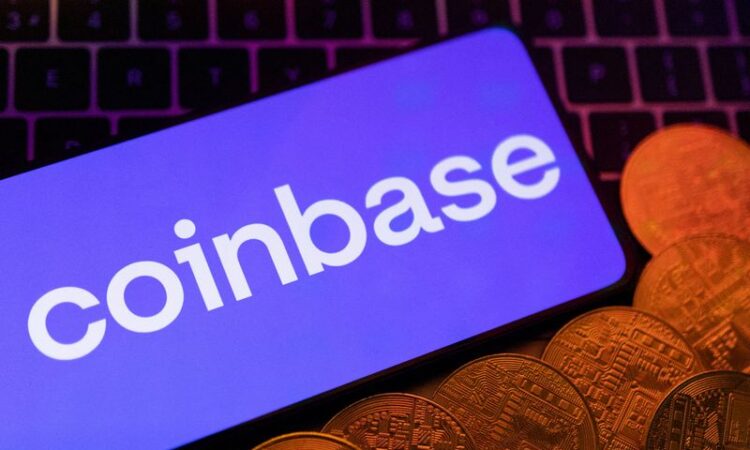
By John Kruzel
WASHINGTON (Reuters) – The U.S. Supreme Court on Friday agreed to hear a dispute over Coinbase’s effort to move a dispute with users of the cryptocurrency exchange out of courts and into private arbitration, which businesses often prefer over litigation.
The justices took up Coinbase’s appeal of a lower court’s ruling that the trading platform had effectively waived its right to arbitrate a dispute stemming from a 2021 sweepstakes that users later alleged was false advertising.
Companies generally prefer to arbitrate claims because the process is cheaper and faster than litigation in court, which can be harder to fight and carries a greater risk of hefty damages awards.
At issue in the case is whether it is up to a judge or an arbitrator to decide which of two apparently conflicting agreements is controlling in the dispute between Coinbase and its aggrieved users. The decision about which contract prevails, in turn, would determine if the dispute proceeds in arbitration or in court.
Upon creating their Coinbase accounts, users agreed to resolve any disputes with Coinbase in arbitration. But a subsequent agreement that related specifically to the sweepstakes said disputes over the contest should be heard in court in California.
When users later accused the company of violating California’s false advertising law by duping them into paying to participate in a sweepstakes that offered prizes in dogecoin, a type of cryptocurrency, they brought a class action suit in federal court.
A federal judge in California refused Coinbase’s request to force the dispute into arbitration, as the company argued the user agreements required. The San Francisco-based 9th U.S. Circuit Court of Appeals affirmed the judge’s decision.
The justices in June ruled 5-4 in Coinbase’s favor in a similar dispute. In that case, the justices endorsed the company’s bid to halt customer lawsuits while it pursued appeals aimed at moving the disputes out of courts and into private arbitration.
(Reporting by John Kruzel; Editing by Will Dunham)






